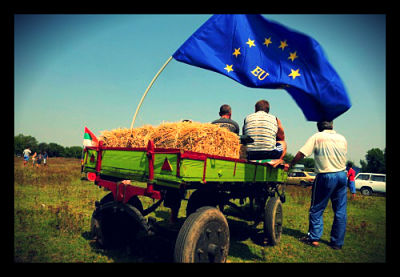EU Needs Genetically Modified Crops For Future Food Security

Despite understandable concerns in regards to genetically modified (GMOs) foods and the possible long term effects they have on consumers, the ability of GMOs to withstand the catastrophic consequences of pest infestation is unmatched by conventionally farmed crops. Furthermore, as the world population rises and global food demands continue to swell, scientists are becoming more concerned that current EU agriculture production will be inadequate for meeting the demands of the developing world. In an effort to both bolster current crop production and change the narrative concerning GMOs, researchers are claiming that the EU needs genetically modified crops in order to stay competitive in the technologically driven international agricultural industry.
Brought to the forefront of discourse surrounding current EU agricultural policy, scientists from Trends in Plant Science Magazine cited the considerable amount of data showing that although the cultivation of GMOs is banned – or severely limited – in the EU, the region still imports genetically modified crops from countries that have embraced the technology. EU farmers stymied by current laws regarding GMOs are unable to compete with overseas producers, thus requiring the region to import an ever-increasing percentage of their crops. In light of this, researchers are claiming that the EU needs genetically modified crops in order to maintain their own agricultural sustainability and that of their considerable humanitarian obligations abroad.
In regards to the claim that the EU needs genetically modified crops, University of Lleida Agrotecnio Center researcher Paul Christou comments that the EU is being surpassed by other nations because it hasn’t adopted technology which is deemed unpopular. “Ultimately the EU will become almost entirely dependent on the outside world for food and feed and scientific progress,” said Christou.
The issue of identifying realistic solutions to future food security problems is garnering greater and greater attention from academics, agricultural officials, and farmers looking to mitigate the problem while simultaneously bolstering their own market competitiveness and sustainability. Although stating that the EU needs genetically modified crops might upset those uncomfortable with anything but conventionally sourced food, policy changes must be enacted today in order to combat the food security problems of tomorrow. “Realizing this is the only way to achieve sustainable agriculture,” said Christou.
–Brian Turner
Source: Science Daily
Photo: Novinite
